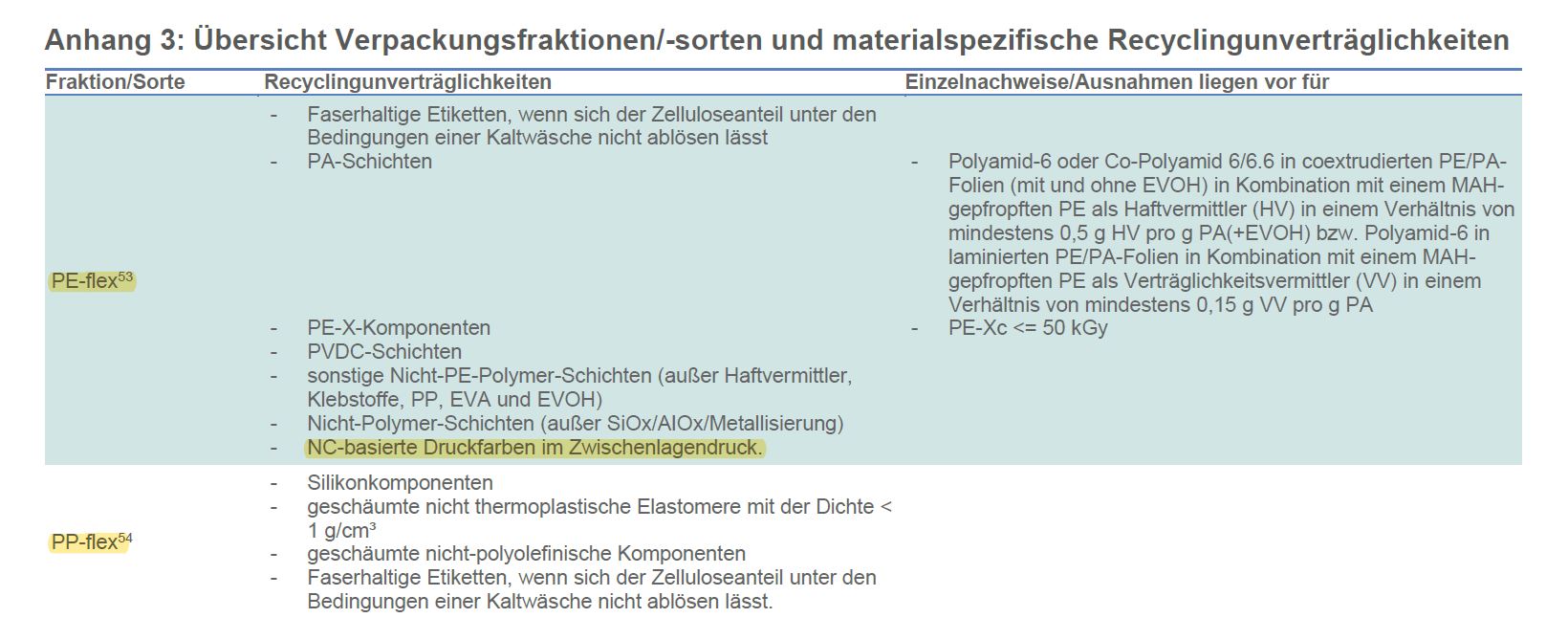What does this mean for your packaging?

If you use any of the above-mentioned composites in the context of recyclability, it will no longer be given from the beginning of next year. The period between publication of the minimum standard and the effectiveness of the regulations (September to January) is always very short. In addition, it is never possible to clearly foresee in advance which changes will actually become legally binding.
After a trend emerged in fall 2023 as to how the recyclability assessment of printing inks could develop, we at ppg > have already started to proactively prepare for the conversion of the ink systems.
However, since more than 70% of all printing inks for flexible packaging are based on nitrocellulose (NC), the 100% conversion of the entire infrastructure, from ink manufacturers to processing in our ink dispensing systems, will take some time. We are therefore currently working hard to ensure the complete use of recyclable inks.
Thanks to our long-standing experience in printing PU inks and our preparations for the changeover, we are nevertheless able to supply the affected compounds in a recyclable form in a timely manner.
In the changeovers to date, good results have been achieved with existing printing plates. However, a binding statement on the compatibility of certain motifs requires an individual case review. The same currently applies to the impact on material costs, as the widespread availability of PU inks is still developing.
If you have any further questions on this matter, please do not hesitate to contact us.




